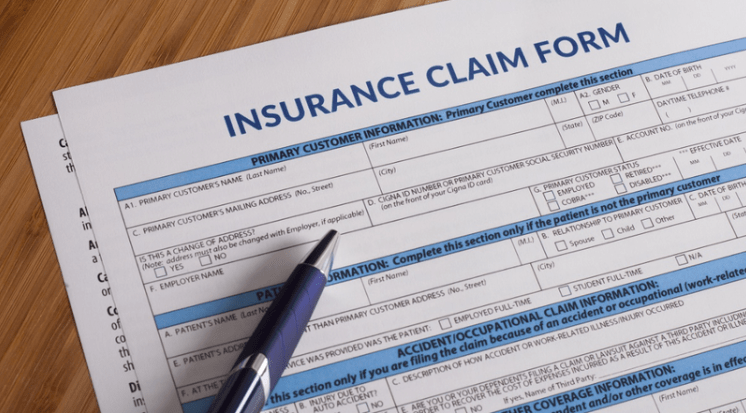car insurance, coverage, premiums, policy, claims, protection, deductible, liability, collision, comprehensive, provider, accidents, damage, legal requirements, benefits, risks, payment, repair, policyholder, financial security, peace of mind
Understanding Car Insurance
car insurance, coverage, policy, protection, financial security, policyholder, risks, benefits
Car insurance is a type of coverage that provides protection against financial losses arising from accidents or damages involving a vehicle. This policy covers different risks that could impact the car owner, offering financial security in case of incidents like theft, collision, or natural disasters. The policyholder pays for this coverage through regular payments, known as premiums, to maintain benefits under the insurance plan. Car insurance ensures that policyholders have the financial support they need in unexpected situations, making it essential for vehicle owners.
How Premiums Are Calculated
premiums, car insurance, policy, payment, coverage, provider, risk, cost, policyholder, financial security
Premiums are the payments that a policyholder makes to maintain car insurance coverage. Insurance providers calculate these costs based on various factors, including the driver’s age, driving history, and the type of vehicle insured. Higher-risk drivers may face increased premiums, as insurers view them as more likely to make claims. Conversely, safe drivers and those with low-risk vehicles may enjoy lower premiums. Calculating premiums helps policyholders understand the costs of their policy, enabling them to manage financial security while protecting their car against potential risks.
Types of Car Insurance Coverage
types, car insurance, coverage, liability, collision, comprehensive, benefits, protection, policy, financial security, damages
Car insurance offers various types of coverage to meet specific needs. Liability coverage is typically required by law and covers damages the policyholder causes to other people or property in an accident. Collision coverage pays for damages to the insured vehicle in case of an accident, regardless of fault. Comprehensive coverage protects against non-collision-related incidents like theft, natural disasters, or vandalism. Each type of coverage has unique benefits and provides essential protection to keep drivers financially secure.
Understanding Deductibles and How They Work
deductibles, car insurance, policy, claims, protection, payment, financial security, cost, coverage
A deductible is the amount a policyholder pays out of pocket before their car insurance takes effect in a claim. Deductibles vary by policy and often influence premium amounts. For instance, choosing a higher deductible typically results in lower premiums, while a lower deductible increases premium costs. Deductibles play a key role in coverage, helping policyholders manage their costs and balance financial security with the protection they need. This structure allows drivers to select a plan that aligns with their financial situation and risk tolerance.
Filing a Claim
filing, claim, car insurance, policy, accident, damage, provider, process, protection, financial security
When an accident or damage occurs, policyholders can file a claim with their car insurance provider to receive financial assistance. The claim process typically requires reporting the incident, documenting damages, and providing information about the accident to the insurer. Depending on the coverage type, the insurance provider will assess the claim and, if approved, cover repair or replacement costs. This process provides financial security and helps drivers quickly recover from unexpected incidents.
The Role of Liability Coverage
liability coverage, car insurance, protection, policy, accident, financial security, legal requirements, damages, policyholder
Liability coverage is a fundamental aspect of car insurance, required by law in most places. This coverage pays for damages or injuries the policyholder causes to others in an accident. Liability insurance offers financial security by covering legal costs and compensation, ensuring the driver doesn’t face out-of-pocket expenses for damages. For drivers, maintaining liability coverage is both a legal obligation and an essential protection that safeguards their finances.
Benefits of Collision Coverage
collision coverage, benefits, car insurance, protection, accident, damages, repair, policy, claims, financial security
Collision coverage provides protection for the insured vehicle, covering damages resulting from accidents, regardless of who is at fault. This policy is essential for drivers who want additional financial security, as it handles the repair or replacement of the vehicle after an accident. By filing a claim under collision coverage, drivers can address damages without bearing the full cost, ensuring their car is restored to working condition and their finances remain secure.
Comprehensive Coverage and Its Advantages
comprehensive coverage, car insurance, advantages, protection, damage, theft, natural disasters, policy, claims, security
Comprehensive coverage protects against non-collision events that can damage a vehicle, such as theft, vandalism, and natural disasters. This policy is beneficial for drivers who want complete protection beyond just accident-related damages. When filing a claim under comprehensive coverage, policyholders receive assistance for repairs or replacements in cases of extensive damage. With comprehensive coverage, drivers gain security and peace of mind, knowing they’re protected from a wide range of risks.
Choosing the Right Car Insurance Provider
choosing, car insurance, provider, policy, coverage, premiums, protection, financial security, benefits, comparison
Selecting a car insurance provider is crucial for getting the most suitable policy. Factors such as premiums, coverage options, and customer service should be considered. Comparing different providers allows policyholders to understand the benefits and limitations of each option, ensuring they find the right protection and financial security. A well-chosen insurance provider offers reliable support, timely claim handling, and affordable premiums, making it easier for drivers to manage their insurance needs.
Legal Requirements for Car Insurance
legal requirements, car insurance, coverage, liability, policyholder, accident, financial security, protection
Most jurisdictions have legal requirements mandating that drivers maintain car insurance, specifically liability coverage. This mandate ensures that drivers can cover damages if they cause an accident, protecting both parties involved. Adhering to legal requirements helps policyholders avoid fines and penalties while also providing financial security. By understanding the insurance laws in their region, drivers can ensure compliance and maintain essential protection on the road.
FAQs on How Car Insurance Works
1. How do car insurance premiums work?
Premiums are regular payments that policyholders make to maintain car insurance coverage. They vary based on risk factors like driving history and vehicle type.
2. What types of car insurance coverage are available?
Types of coverage include liability, collision, and comprehensive, each offering different levels of protection against accidents and damages.
3. How do deductibles affect car insurance costs?
A deductible is the amount a driver pays before the insurance kicks in. Higher deductibles lower premiums, while lower deductibles raise premiums.
4. Why is liability coverage important?
Liability coverage is required by law in many areas, protecting drivers financially if they’re responsible for causing an accident.
5. What is the process for filing a car insurance claim?
The claim process involves notifying the provider, documenting damages, and submitting the claim, allowing the policyholder to receive financial assistance for repairs.



